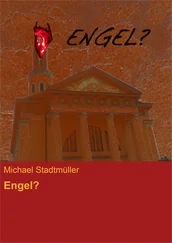"No doubt, this will be complained of as illiberal, as quite too severe; but the only question we have to ask is: Is it true? Is it the law? If it is the law of God, it is true; if it is what the Church teaches, we have nothing to do with the question of its liberty or illiberality, of its severity or its leniency. All we have to guard against is against asserting it in a harsh or illiberal spirit, in a severe and cruel temper, or with any uncharitableness towards those who expose themselves to the terrible consequences of rejecting Christ and his law, or who refuse to suffer him to reign over them. We may love and pray for them, but to seek to alter the divine constitution of his kingdom is to incur ourselves the guilt of rebellion. There is but one right way; and while it is our duty to walk in it, it is also our duty to do our best to show it to those who are out of it, and induce them to come into it. It were a sin against charity to leave them to think that they can be saved out of it, or by any other way. It would alter nothing in the law, which is, independent alike of them and of us, were we to do so. A man may be as liberal as he pleases with what is his own, but to give away what is another’s is an injustice. God is just and merciful, and he loves all the works of his hands, for never would he have made anything, if he had hated it. Christ so loved even sinners that he gave his life for them, and it is a want of faith in him to doubt the wisdom or justice, the goodness or mercy of his law. The Church cannot save those who reject her, but she weeps as a loving mother over those who are out of the way, and go to sure destruction. Charity is higher and broader than blind sentimentality. It loves all men, but it loves them in God." (Review, Oct. 1873)
Every well instructed Catholic knows and understands this great truth of our religion, and would feel highly indignant at the suggestion of the least thing contrary to it.
About five years ago, if we remember well, a Protestant preacher of New Orleans acted like the Protestant Bishop Coxe. He selected, from Familiar Explanation of Christian Doctrine, the same detached sentences quoted by Coxe, to prove by them the idolatry and error of the Catholic religion. He had his long discourse inserted in a Protestant newspaper of New Orleans. His object was to prevent Protestant ladies from taking part in a fair the profits of which were to go towards paying off the debts of some Catholic churches. In reply to this malicious article Judge McGloin, a learned and devout Catholic of New Orleans, inserted in the same newspaper an elaborate article in which he clearly proved, from good Catholic authors, that the explanation which we had given of the Catholic Doctrine in question was perfectly correct.
Конец ознакомительного фрагмента.
Текст предоставлен ООО «ЛитРес».
Прочитайте эту книгу целиком, купив полную легальную версию на ЛитРес.
Безопасно оплатить книгу можно банковской картой Visa, MasterCard, Maestro, со счета мобильного телефона, с платежного терминала, в салоне МТС или Связной, через PayPal, WebMoney, Яндекс.Деньги, QIWI Кошелек, бонусными картами или другим удобным Вам способом.












